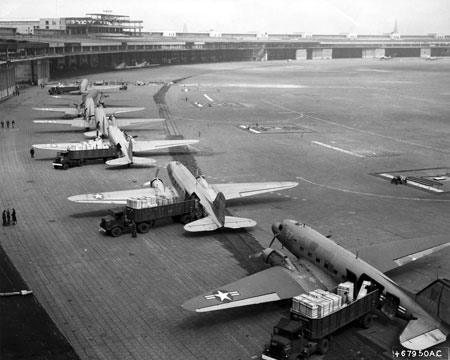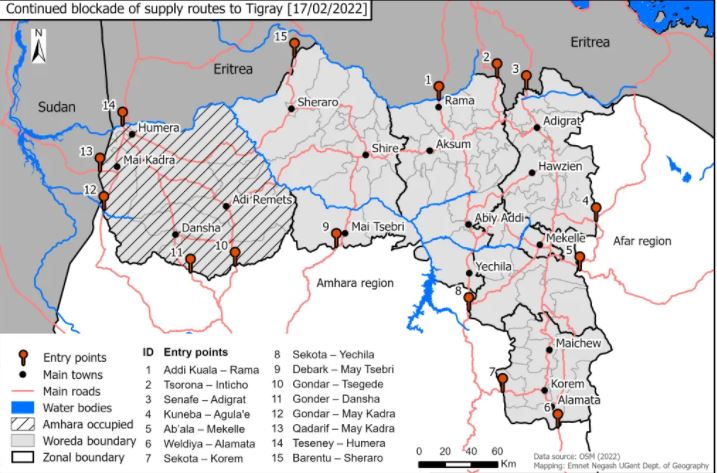
Millions are at risk of starvation and mortal illness due to the intended deprivation from blockade of Tigray by Ethiopia and Eritrea. Only a trickle makes entry rather like giving a man dying of thirst just a drop of water. This situation is strongly reminiscent of the occupation and blockade of Berlin in 1948 by the Soviet Union. At this point the Ethiopian government has obviously and undeniably abrogated any role of support or responsibility for the people of Tigray. Ethiopia is a signatory of Article 54 of the 1977 Protocol of the 1949 Geneva Convention calling for actions to save civilian populations as well as the Declaration of Human Rights but has failed in carry out its human needs obligations. Additionally no diplomatic action has been successful to relieve Tigray of blockade or a foreign invasion by Eritrea.
At the end of World War II East Germany including much of Berlin was under the occupation and control of the Soviet Union while Western Germany was under occupation of the United States and its European allies. Beginning on June 24, 1948 blockaded road, rail, and water access to the areas of West Germany and Berlin. A few days later a major airlift began by the United States and Great Britain which carried on until May of 1949.
The human needs of millions of Tigrayans for whom death is an increasing reality cannot be delayed. An substantial airlift much greater in capacity then the current limited flights is vital. Consisting of fuel for civilian distribution of basic necessities, food, water purification, farming supplies, and medical supplies on a grand scale is the only measure light to avert a human catastrophe unrivaled in willful savagery. While this is going on strong diplomatic efforts to open the multiple potential overland routes identified by academic sources not just Afar should be ardently pursued.


